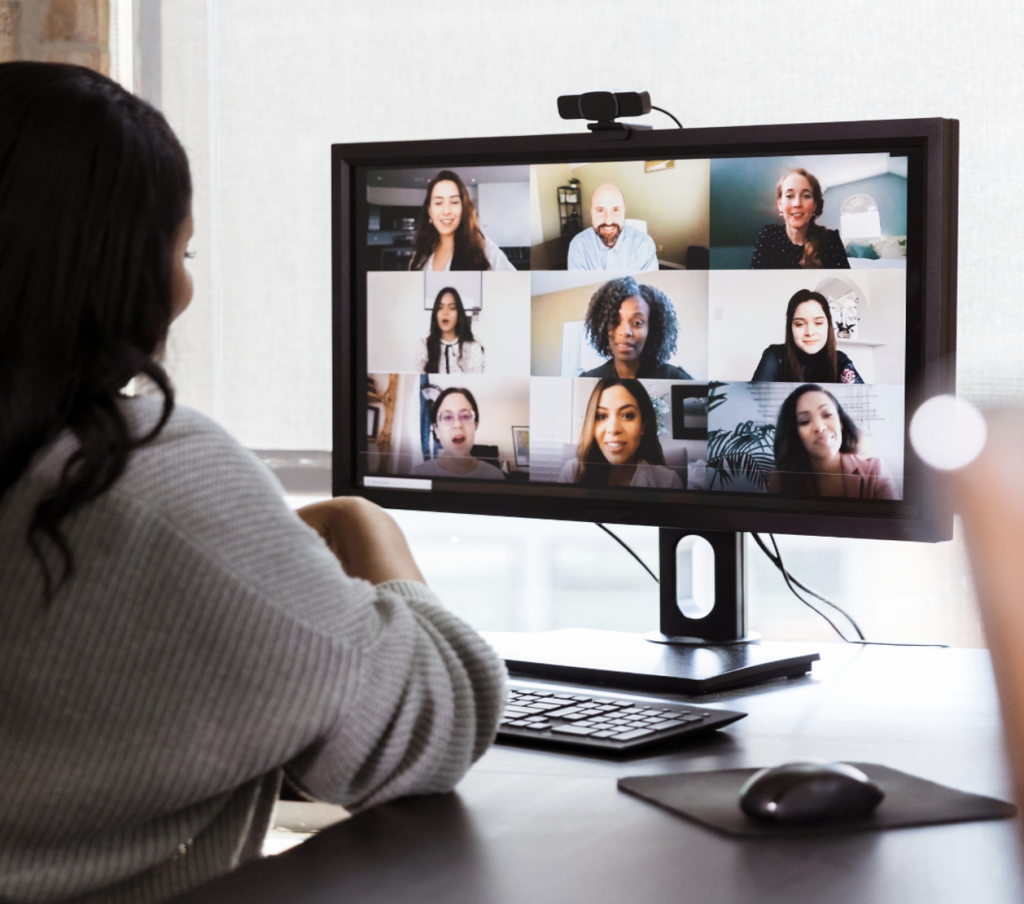As we wind up our second year dealing with the Covid pandemic, many have grown accustomed to the American workplace’s changing landscape. Long commutes are a thing of the past, Zoom and Google Meet have become the new water cooler, and cracks are beginning to show in what is now called the Great Resignation.
The experts at Organizational Performance Group (OPG) are here to walk us through the maze of a drastically upended workplace and help us create a new path to success.
OPG is a leadership training and consulting firm dedicated to creating better organizations. OPG believes that people and their ability to work together are critical to the success of your organization and that organizations that inspire and empower their employees have a competitive advantage. Simply put, OPG believes an organization’s success depends on its people.
One of the first challenges people face when working from home is the increase of daily virtual meetings. “This is a challenge that so many of us are facing and that will likely be a part of our daily routines for some time to come,” explained Carolina Cely, associate at OPG.
“First, it is important to use your voice, speak up and encourage discussions regarding the meetings. Who is needed at this meeting? What are we trying to resolve through this meeting? Are there other ways to address those objectives, such as collecting inputs via email or sharing a Google document? Can we consolidate several topics into a single meeting?”
In the past, firm rules of etiquette ruled the workplace. With seismic change comes a new set of rules.
“With in-person meetings, it can be helpful to instill discipline and protocols around the meetings,” continued Cely. “For example, every meeting should have a specific agenda and set of objectives. Every meeting should be time-bound. Give attendees opportunities to turn off their video cameras at appropriate times to reduce Zoom fatigue.”
OPG doesn’t just offer guidance and takes its advice in their office. “At OPG, as part of our culture, we strive to ensure that staff have breaks between meetings and proactively schedule 15-30-minute blocks of ‘transition’ time between back-to-back meetings. We find all these practices tremendously helpful and are disciplined about adhering to them.”
Despite access to virtual meetings, living without real human connection is an issue in this new workplace. “Organizational development models and research show that personal connections among team members are so important, and they should be actively encouraged. At OPG, formal meetings, whether virtual or in-person, often start with a ‘settling in’ question posed to all participants that allow teammates to share and learn about each other. Incorporating intentional socialization opportunities is also useful, such as sharing meals or working on a fun activity together. I once hosted a virtual trivia game that was a smashing success.”
And while the convenience of remote work is tempting, don’t hesitate to host in-person meetings whenever possible. “Strive to get the team together from time to time. Don’t rely solely on virtual gatherings, even if those work great.”
“There are also more formal ways to foster connection, such as holding virtual or in-person team retreats, which can be very low cost. At OPG, our last retreat was focused on restoration, play, and skill-sharing. Every team member contributed an activity to the retreat, which distilled the organizational burden of planning and executing the retreat, making it more feasible.”
Here are a few tips for organizing the day to optimize productivity:
* Get into the habit of using a calendar for tasks you absolutely must get to or want to accomplish. Psychologically, this helps you to maintain your commitment to the task.
* Be realistic about how long you can productively spend on a task at one time, e.g., before needing a break. For example, many people find it helpful to work in blocks of 30 minutes.
* Be mindful of when your energy levels are highest during the day and schedule cognitively demanding tasks during those times.
* For longer tasks, ensure you build in breaks throughout the day and be disciplined about taking them as scheduled. You’ll be less likely to give in to distractions during your work time.
* Exercise self-care and integrate healthy habits into your regular day or week, such as taking a short walk after lunch. Prioritize these habits as much as “productive” tasks.
It’s important to remember that the American workplace has gone through multiple changes throughout history and has survived. Your best tool is to keep a positive attitude and to look for the opportunity in a difficult situation to create an even better workplace for the future.




